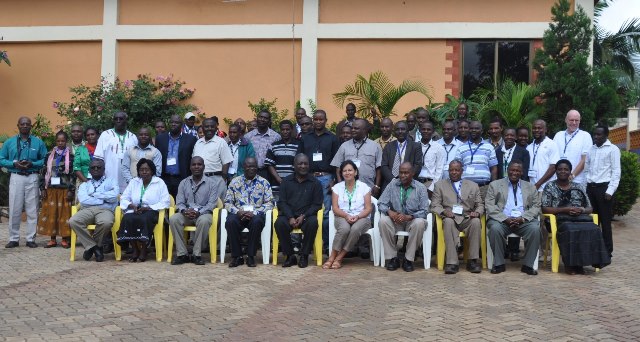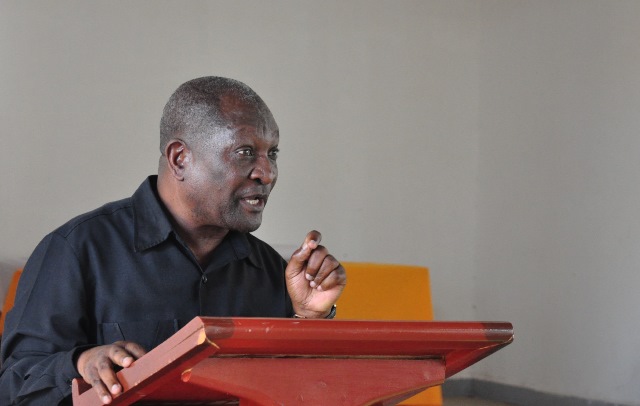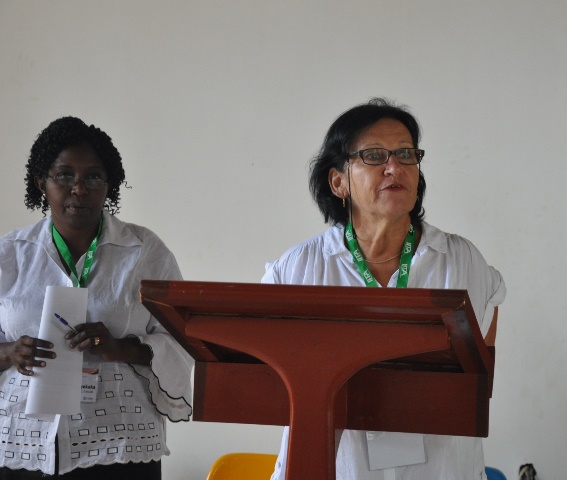Africa RISING establishes a partnership platform to facilitate uptake and adoption of innovations by farmers in Babati District, Tanzania

The partners of the Africa RISING project and the Babati District Council have launched the Babati District Research for Development (R4D) platform to facilitate the uptake of the project’s innovations in the district. Babati District in Northern Tanzania is one of the three district the project is working in in Tanzania. The platform will help in setting priorities for the research and ensure sustainability of the project.
The platform was formed at a two-day meeting of the project’s stakeholders who included farmers, local and regional government officials, national and international research institutions, extensionists, Non-Governmental Organizations (NGOs), private sector and policy makers. Each group selected two members to represent them on the R4D Platform Management Committee. The meeting was held on 10 – 11 April 2014 in Babati.
RC lauds project for livestock component

The launch event was officiated by the Manyara Regional Commissioner (RC) Hon Erastus Mbwilo. The RC assured the project staff, partners and beneficiaries of his support as its endeavor to improve the livelihoods of small-holder farmers in the region and was well in line with the government’s development goals.
He was particularly happy to note that the Africa RISING project was working to improve the productivity of both crops and livestock through modern farming methods.
“Livestock is very important for our farmers in Babati. There are over 1.4 million heads of cattle in the district without counting the goats, the donkeys and the chickens. Unfortunately, many development partners often neglect livestock and focus on crops only. Therefore, the livestock sector faces many challenges including pests and diseases, poor breeds, lack of feed and overstocking and the farmers are not able to maximize on their livestock to increase their income,” he said. “Therefore if these challenges are tackled through your research efforts, then, the project will surely make a difference in improving the livelihoods of the farmers in Babati.”
He further commended the Africa RISING approach of conducting research together with the farmers through demonstration plots which he said will ensure the new technologies developed get to the farmers. He urged for the research findings to be up scaled beyond Babati District to include the whole of Manyara Region.
“A lot of research never gets to the farmers. It remains in the files. Working with the farmers will ensure the research gets out to the farmers. And when our farmers use the knowledge from research to improve their crop and livestock production, we will make very good progress as a country in our development efforts,” he said.
AR cannot tackle all crop and livestock challenges alone

Also speaking during the official opening of the workshop, Irmgard Hoeschle-Zeledon, the Africa RISING Program Coordinator at IITA said the R4D platform was very important in ensuring the sustainability of the project’s impacts. She noted the platform will help solve some of the factors that limit the uptake and adoption of new technologies by farmers and which are beyond the project scope.
“Africa RISING is not able tackle alone all the challenges faced by farmers in their livestock and crop production . We have to bring together different stakeholders to work together. Hence the need for an R4D platform. Furthermore, significant change in farm productivity will not happen through a few individual farmers who will adopt the technologies developed. Rather, it will depend on the simultaneous changes in all interdependent stakeholders including farmers, extension agents, research institutions, policy makers, finance institutions, market agents, and representative of different local and regional authorities among others,” she said.
Attracting youth to agriculture
Also present at the workshop was Victor Manyong, the IITA Director for Eastern Africa and the chair of the Africa RISING East and Southern Africa project Steering Committee.
Manyong noted that the Africa RISING research efforts needed to translate into better income, improved welfare of the farmers: “Many researches come and go. With Africa RISING we want to see something different. We want to see change. Therefore take ownership of the project and be on the driving seat. And as IITA and all other partners in the project we will support you,” he informed the project partners and beneficiaries. “We especially want to see young people get engaged in agriculture so they stop running off to urban areas.”
He also briefed them on IITA’s effort to engage the youth in Africa in agriculture to tackle the high rates of unemployment. The youth in Babati would also be included in the initiative, he said.
Ivan Rwomushana from the Association for Strengthening Research in Eastern and Central Africa (ASARECA), another Steering Committee member, was also present.




